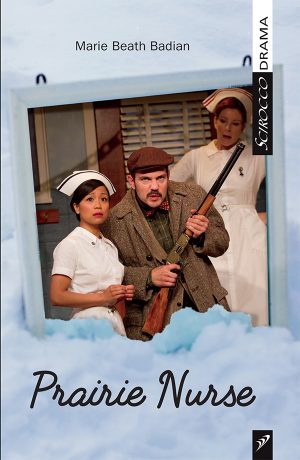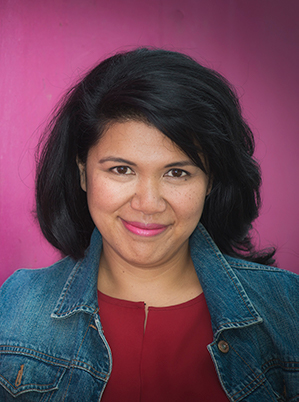Posted January 18, 2022
The Interview – Marie Beath Badian
Marie Beath Badian
Marie Beath Badian is a Toronto playwright, actor, and dramaturge. Her work includes Prairie Nurse, The Making of St. Jerome (nominated for three Dora Mavor Moore Awards), Mind Over Matter, and Novena. In addition to a CBC Radio Drama adaptation of Novena, she has also written for CBC Radio’s Outfront. Marie Beath has been playwright-in-residence at fu-GEN Asian-Canadian Theatre Company and with Project Humanity. Marie Beath was a member of the HotHouse Playwright Unit at Cahoots Theatre Company and a member of the 2013 Tarragon Playwright Unit. She spent two seasons as director of the Blyth Festival Young Company, two seasons as co-director of Youth Programs at Nightwood Theatre, and two seasons as Associate Artistic Director/Associate Artist at Theatre Direct Canada. Marie Beath is a graduate of the Ryerson Theatre School.
Who or what are some of your playwriting influences?
SO MANY! I love the rhythm and lyricism of Lisa Codrington, the playfulness and word acrobatics of Anna Chatterton, the super-sharp translations by Leanna Brodie, the scope of worlds written by David Yee, the depth of emotion of Keith Barker.
The most influential play I read early in my career was Pop Song by Sean Reycraft. It was part of the Buncha Young Artists Having Their Say Festival from Theatre Direct in the early 2000s, and I believe it is published in an anthology by the same name. That play captured huge emotional truth and depth of character with such an economy of language. And so funny, and heart-breaking and timelessly in-tune with the pressure-cooker of teenage emotions. All in a 20-minute play. I love that play so much.
Lastly, I am inspired by Sarah Ruhl, especially her stage directions—they are direct, whimsically badass and empowering.
What do you like best about being a playwright?
Lately the thing l like best is that I think my ten-year-old kiddo finally understands what I do for a living. I’ve caught them reading some of my discarded drafts, though I honestly think they are just reading them to point out my typos.
Outside of my kiddo-editor, my favourite part of playwriting is when I get to hear a draft out loud for the first time. It is absolutely nerve-wracking, but worth it to finally hear out loud what has been living in my head for so long. That moment when a character speaks and I get that chill and think “Oh, there you are!” It’s when the isolation of playwriting suddenly becomes the party of collaboration.
Your play Prairie Nurse, which features two nurses emigrating to Saskatchewan from the Philippines in the 1960s has struck a chord with audiences across the country. A little bird told us that that play is the first in a trilogy of plays! Could you tell us some more about that project?
Yeah! The second play is called The Waltz. It is set in 1993 and is that chance meeting between Penny’s son and Puring’s daughter; Penny and Puring were the two nurses in Prairie Nurse.
One of the impulses to write it came from watching the Station Arts Centre production of Prairie Nurse in Rosthern, Saskatchewan. The theatre is an hour outside of Saskatoon. I had never been to Saskatchewan in the summer. I was in awe of the sky at dusk. No photograph could possibly do it justice. The setting of The Waltz is under that very sky. It is a joy to imagine all the magic that could happen under that sky between two strangers more connected than they seem.
The last play is called The Cottage Guest, set in the present. It is about family, legacy and grief. I’m a bit shy to share more about it, since she’s still baking. I hope I can share more soon.
Have you been able to see any theatre since the pandemic began? Any favourite recent theatre experiences?
This past summer I took my kiddo to see their very first show at the Blyth Festival. It was Café Daughter by Kenneth T. Williams, staged at their recently-built outdoor theatre. We watched that play under the Huron County sky, as the sunset over the field. My face mask was soaked, and my glasses were fogged from weeping. At the end of the play, I turned to my kiddo and before I could ask how they liked it they declared, “That was SUCH a GOOD PLAY.”
-
 Prairie Nurse Paperback$15.95
Prairie Nurse Paperback$15.95

